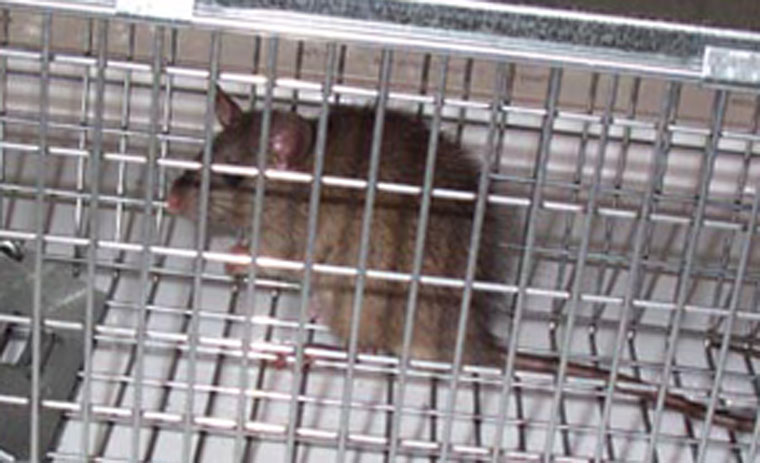- info@wildlife-removal.com
Call us for help in your town
Wildlife Removal Education
What do Wild Rats Eat?
Need rat removal in your hometown? We service over 500 USA locations! Click here to hire us in your town and check prices - updated for year 2020.
Two rats that you are commonly going to find in North America are the black Rat and Norway Rat. The second one - Norway rat - is found more inland, with the black rat pushed out towards ports and other waterways. They have similar diets, both scavengers and omnivores, just like we are, and they eat a lot of food too. More than you'd think for such small critters.

Rats, regardless of species, are considered to be "opportunistic feeders". This means that they don't necessarily go out looking for one particular food to hunt, chase, and then kill, but will eat anything and everything it comes across instead. They have been given the title - scavenger - and the title fits well. Along with foxes, coyotes and raccoons, rats will eat anything, almost providing a cleanup service, including roadkill, moldy food, rooting carcasses.
Food that is easy to come by for a rat include nuts and seeds, fresh fruits and vegetables, agricultural crops, grains, whatever they can find in garbage bags and dumpsters. Cat and dog food will be eaten if they are left out on the porch overnight. Bird feeders will be devoured. Even flowers and fruit/veg plants you have growing in the back garden will be hit. Rats have survived by learning to eat what they find, and sometimes that even means eating some pretty disgusting things.
Although rats are relatively lazy and would rather find their food, than chase or hunt for it, they will chase and kill insects and other small animals, including mice and smaller rats. Again, this puts your back yard at risk just as much as more wild areas. Your back garden will be teeming with insects, especially if you have flowers growing out there, or patches for fruits and vegetables, and this is what many rodents are on the lookout for, particularly in the spring and summer months. Insects make the perfect small snack when you fancy giving something a quick chase, but you don't want to put in too much legwork.
Many wild animals, particularly scavengers, have learned that humans areas are much better places to find easy food than wild habitats. That's why they're moving in ... and they really are moving in, too.
Although you might not think it, there are hundreds of rat-friendly food sources in your home and surrounding land or estate. If you have a bird feeder in the back yard, there's a pretty good chance that rats will have enjoyed the delights that fell out right underneath it. Other scavengers will join that party too, especially raccoons.
Chicken feed - Where is that kept? What about the chickens and eggs? It's actually not that uncommon for rats to eat chicken eggs if they can get to them, and sometimes the chickens can get injured in the process too.
Pet cat and dog food provides food even when it hasn't been left outside. A rat can easily figure out a cat flap, and if there is a reason to risk getting caught by the cat, the rat will jump in and make a dash for the food bowl.
Even garbage bags and compost heaps provide food for passing rodents, although there are plenty of ways in which you can modify these areas to make them less accessible.
Go back to the Rat Removal page, or learn tips to do it yourself with my How to Get Rid of Rats guide.


















